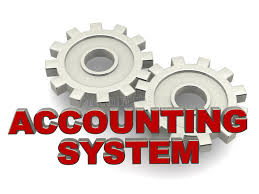Knowing your gross and net income is essential if you want to understand how your firm is doing financially. It’s also crucial to understand how gross income is converted to net income and vice versa. With our basic reference to gross vs. net income salary UK for business finances, you can learn more about the significance of these phrases and how to use its calculator.
What Is Gross Income?
Your gross income consists of more than just your pay or compensation. It also includes alimony, rental income, pension schemes, interest, and dividends, among other sources of income. If you only work one job and are paid an annual salary, your gross income will equal your total yearly compensation before any taxes or benefits are deducted from your cheque. Mary, for example, is a teacher who earns $40,000 a year. Her salary is the total amount of money she earns.
If you’re a freelancer or independent contractor, your annual gross income is the total amount they pay you for the job you do for clients over the course of a year. If you work as an hourly worker, your yearly gross income is by multiplying your hourly wage by the number of hours you work each year.
What Is Net Income?
In a nutshell, net income is your gross income minus taxes and other deductions from your paycheck. It’s the amount of money you get paid. To figure it out, start with your gross income, which is the total of all taxable earnings, tips, and investment income such as interest and dividends. Then remove any legal responsibilities, such as loan payments, child support, or wage garnishments. As well as income taxes, insurance payments, retirement account contributions, social security, and Medicare taxes.
Mary, for instance, makes $40,000 per year as a teacher. Her net income may be closer to $30,000 after she deducts taxes, insurance payments, retirement plan contributions, and any other deductions from her pay. This is her “earnings after taxes.”
Net income is a good predictor of how much you will wind up spending in taxes each year. Can give you a more realistic notion of how much you can afford to spend.
Understanding Gross Income vs Net Income UK
If you’re a small business owner or self-employed, knowing your gross and net revenue is critical to managing your personal finances and running a successful firm. It can also assist you in making important financial decisions, such as when to raise your rates, and whether certain expenses are necessary. Which types of income, projects, and clients to concentrate on?
Gross vs net income in the UK might give you a distinct perspective and influence your personal and professional objectives and actions. Gross income can show you how much money you’ve made year after year giving you a sense of how well your company is performing. However, net income paints a slightly different picture: it shows how much money you make after expenses are not among. Consider lowering certain expenses if your net income is smaller than projected.
Understanding Taxable Income
You’ll start with your gross income when filing your federal and state income tax returns. Then, after subtracting deductions, you can figure out just how much you’ll owe.
Your gross income, on the other hand, is not the same as your taxable income. That’s because some sources of income aren’t in your gross income for tax reasons. Life insurance payouts, certain social security benefits, state or municipal bond interest. Some inheritances or gifts are all common instances.
Your taxable income is now referred to as your adjusted gross income (AGI). After eliminating “above-the-line” tax deductions from your gross income, this is what you earn. You’ll decide whether to take the standard deduction or itemize your tax-deductible expenses after computing your AGI. One of the two solutions will cut your taxable income more than the other, depending on your financial circumstances.
The following are the standard tax deductions for the year 2022:
- $12,550 for single filers and $12,550 for married filers filing separately
- For married taxpayers filing jointly, the amount is $25,100.
- $18,800 for taxpayers who meet the definition of a head of household.
After typical deductions, your taxable income is what’s left, and it can be a lot less than your gross income. Your gross income, on the other hand, is more than just a starting point on your tax returns. This number is also helpful to lenders and landlords when deciding whether or not to lend you money or rent you a home.
Gross vs Net Income Salary Calculator
Let’s compute the various gross vs. net income values using a calculator.
Assets: A corporation owns $5 million in land, a $2 million building, and a $4 million mortgage. The net asset value is $3 million ($5 million + $2 million – $4 million), but the gross asset value is $7 million ($5 million + $2 million).
Rental income of $1 million per year, interest payments of $200,000, salaries of $250,000, and taxes of $100,000 are all reported by the same corporation. The total revenue is $1 million. $450,000 in net income ($1 million – $200,000 – $250,000 – $100,000).
How Do I Calculate Gross Pay from Net Pay?
In order to calculate your gross pay from your net pay, you need to know how much of a given paycheck went toward paying taxes and benefits and how much was garnished from your paycheck. Your gross pay is equal to your net pay plus the amounts that you have already paid in taxes, benefits, and garnishments. If you are unsure of the precise amounts that are withheld from your paycheck, you can estimate your gross pay by using an estimated tax rate that falls between 10% and 37%. On their websites, payroll firms like ADP typically include net pay calculators for their customers.
How Do I Calculate Net Income From Gross?
The difference between the gross profit and all other expenses and costs, in addition to any other sources of income and revenue that are not included in the gross income, is known as the net income. The interest on debt, taxes, and operating expenses as well as overhead charges are some of the costs that are deducted from the gross income before arriving at the net income.
Do Employers Pay Gross or Net?
The gross income of an employee, as well as a share of that employee’s FICA taxes, as well as any employer-paid benefits, are all the responsibility of the employer. Therefore, the cost of an employee for each pay period would include their gross pay in addition to 7.5% of their pay for FICA taxes, plus your portion of their health insurance premium or stipend, if any, employer-sponsored retirement account contributions, if any, and any other employer-paid benefits. The amount of the employee’s paycheck or deposit that remains after deductions have been taken out is referred to as the employee’s “net pay.”
Which is More; Net Pay or Gross Pay?
Due to the fact that net pay takes into account deductions from gross pay, it is likely that gross pay will always be more than net pay. Gross pay is an employee’s total earnings such as wages or salary, whereas net pay is earnings minus payroll deductions such as taxes, benefits, and garnishments. An employee’s complete earnings are referred to as gross pay. The amount of an employee’s salary that they actually get to keep is their “net pay.”
Gross vs Net Income Salary UK
In accounting and finance, the terms gross and net are sometimes interchangeable. The simplest method to figure out what someone is saying is to consider what may be natural about something.
If someone says, “Our company made $30 million in our internet segment last year,” you might want to inquire, “Gross or net?” If they say gross, they’re most likely referring to revenue or gross profit (you may need to ask for further clarification). Also, if they mention net, you can presume it’s net income salary (after all expenses are out). But you should still ask for clarity because they could be referring to operational expenses just (without interest and taxes), or they could be referring to everything.
Unfortunately, as the example above shows, it is sometimes unclear what someone means when they say “gross” or “net,” necessitating more clarification. The only way to be sure what someone means is to ask them specifically what is in the figure.
How Gross Income vs Net Income UK Can Affect Your Budget
It’s crucial to know which number to use when creating a budget: gross income or net income salary. Because your take-home pay, or the money you’ll really earn on payday, is your net income, it’s probably best to focus on that amount while making a budget.
Look at how much you take home over the course of a month after you’ve figured out how much you take home. Because most bills need monthly payments, you’ll need to know this figure.
Start tracking how much you spend each month once you know how much you take home each month. Begin with your fixed expenses, such as rent or mortgage payments, utility bills, school loans, and anything else that requires a monthly payment.
Then, add up all of your variable expenses. These expenditures could include your monthly grocery bill, car gas, credit card payment, and any other variable charges.
Once you’ve used the net vs. gross income calculator to calculate your fixed and variable expenses, bring the two figures together to find out how much you spend each month. Subtract this amount from your total monthly net income, also known as take-home pay. A good rule of thumb is to put that money aside each month or use it to pay down high-interest debt. If you don’t have any money left or the amount is negative, you might want to explore cost-cutting. Examine your expenses to see where you might be able to save some money.
Why Do Differences Between Net and Gross Income Matter to Your Business?
Both gross and net income help companies make informed choices. Gross income metrics represent the health of revenue streams. The success of a business can be evaluated by dissecting its reported gross revenues.
When all costs are subtracted from the revenue, the result is the net income. A company can make changes by looking for ways to cut specific expenses if gross income remains at an expected level but net income begins to dip. A net loss is recorded when operating costs exceed revenues.
Gross and net income estimates can be broken down into its component parts to help you determine your break-even point and the volume of sales you need to achieve profitability on a monthly or annual basis, respectively.
In addition, the IRS bases the amount of a company’s corporate tax bill on its net income. How a company’s net income is taxed might vary widely depending on its legal form. Profits from sole proprietorships and LLCs are included in the individual tax returns of their owners. The profits of an S corporation are distributed to the company’s shareholders, who pay taxes on that money at their own rates. To avoid double taxation, C corporations treat themselves as a legal entity distinct from their stockholders and file their taxes as such. Talking to a tax professional or attorney can assist you to choose the business structure that will be most beneficial when filing your taxes.
The 50/30/20 Budget
If you want to stick to a more organized budget, consider the 50/30/20 plan. The fundamental rule of thumb for this budget is to spend 50% on necessities, 30% on wants, and 20% on savings and/or debts. This budget has a modest change to net income salary because you’ll be adding back in deductions like healthcare and retirement contributions.
Next, restrict your necessities category to items such as groceries, rent or mortgage payments, utilities, health insurance, necessary transportation costs, and prescription. Despite the fact that the final 20% is for savings and debt payments. The minimum monthly payment for whatever debt you have should be in the necessities category. Your credit score may suffer if you fail to make the minimum monthly payment on your loan. This section should account for half of your monthly net income.
Items like your cable, phone, and internet bill go into the desires category. It could also include funds for dining out or buying stuff you don’t require. This category’s sum should not be more than 30%.
The remaining 20% is set aside for savings and debt repayment. This includes the money we put back into your paycheck from your retirement account earlier. Any extra variable debt payments should be in the same manner.
What Is the Difference between Gross Income vs Net Income in the UK?
Individuals’ gross income is their pre-tax income, or the entire amount received before taxes and deductions are deducted. Take-home pay, often known as net income, is a lower number: Your net income is the amount of money you earn after deducting taxes and other expenses. Most workers get their net pay in the form of a paycheck with taxes deducted. But most self-employed people get gross compensation from clients and must deduct and pay taxes themselves. Gross and net income are different for enterprises that sell items.
Importance of Knowing the Difference between Gross Profit and Net Profit
Gross profit does not tell your creditors as much about the health of your business or available cash as net profit does. When investors are deciding whether or not to invest in your company. They will look at the net profit to see if it is worthwhile.
Understanding gross profit patterns, on the other hand, might assist you in lowering your cost of goods sold or increasing your product prices. If your gross profit is less than your net profit, you’ll need to find a way to cut costs.
To create an income statement, which is a financial statement that represents the health of your organization. You must know the exact values of gross and net profit. Knowing the difference between the two can lead to financial statements that are erroneous. Paint a false picture of your company. Because the three primary financial records assist management in making critical business decisions. Inaccurate profit information will have an impact on their decision-making.
Conclusion
Even if your gross income is more than your net income, you should be aware of the impact both have on your taxes and budget. Your gross income is used to calculate your adjusted gross income (AGI) and taxes, whereas your net income is used to build your monthly budget. Both are critical components of your financial picture, so knowing your gross and net income is crucial. Taking the effort to learn about your earnings might help you plan for a financially secure future.
FAQs
How do I calculate net to gross?
Because the computation is a straightforward addition: net weight + tare equals gross weight, this net vs gross income calculator isn’t really meant to be used to compute weight.
How do you add 20% to a net figure?
If you know an item’s wholesale price and want to figure out how much you need to add for a 20% markup, multiply the wholesale price by 0.2, which is 20% stated in decimal form.
Is net before or after tax?
The amount of pay after tax and pension deductions is referred to as net pay. Net pay, commonly known as ‘take-home pay,’ is the amount of money available to a worker to spend.
{
“@context”: “https://schema.org”,
“@type”: “FAQPage”,
“mainEntity”: [
{
“@type”: “Question”,
“name”: “How do I calculate net to gross?”,
“acceptedAnswer”: {
“@type”: “Answer”,
“text”: “
Because the computation is a straightforward addition: net weight + tare equals gross weight, this net vs gross income calculator isn’t really meant to be used to compute weight.
“
}
}
, {
“@type”: “Question”,
“name”: “How do you add 20% to a net figure?”,
“acceptedAnswer”: {
“@type”: “Answer”,
“text”: “
If you know an item’s wholesale price and want to figure out how much you need to add for a 20% markup, multiply the wholesale price by 0.2, which is 20% stated in decimal form.
“
}
}
, {
“@type”: “Question”,
“name”: “Is net before or after tax?”,
“acceptedAnswer”: {
“@type”: “Answer”,
“text”: “
The amount of pay after tax and pension deductions is referred to as net pay. Net pay, commonly known as ‘take-home pay,’ is the amount of money available to a worker to spend.
“
}
}
]
}
Related Articles
- Gross Pay: Definitions, Calculations, and Examples (+Quick Tools)
- Interest Income: Definition and Process Of Taxable Interest Income
- ANNUAL INCOME: Definition and Calculations of Gross, Net & Total Annual Income
- Gross Profit Margin: Formula & How to Calculate the Gross Profit margin
- REQUISITION NUMBER: Definition & How it works






